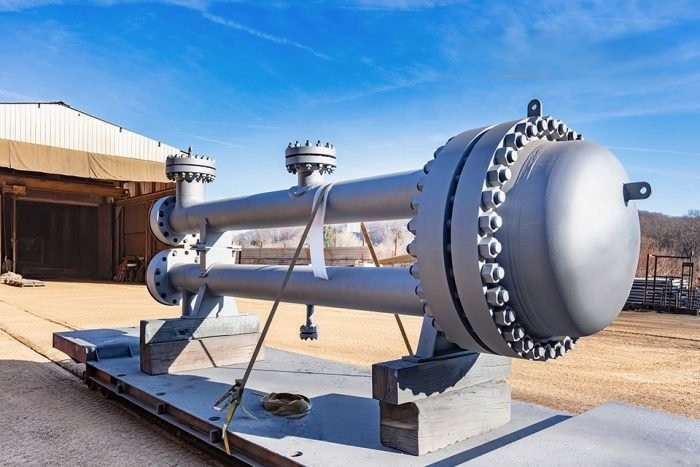Introduction
Nickel alloy heat exchangers is a type of heat exchanger constructed using high-performance nickel-based alloys, known for their remarkable resistance to heat, corrosion, and mechanical stress. These heat exchangers are engineered to withstand aggressive operating conditions involving corrosive fluids, high pressures, and extreme temperatures where traditional materials like stainless steel or carbon steel degrade quickly.
What Makes Nickel Alloys Special?
Nickel alloys are engineered blends of nickel with other elements such as chromium, molybdenum, copper, and iron. The base nickel enhances:
- Thermal resistance
- Corrosion immunity
- Weldability
- Structural strength
These alloys are tailored to specific industrial challenges, often performing under oxidizing and reducing conditions, where no other alloy group can.
Detailed Applications by Industry
Chemical & Petrochemical Industry
- Ideal for heat transfer involving sulfuric, hydrochloric, phosphoric, and nitric acids.
- Used in reactors, reboilers, condensers, and waste treatment systems.
Power & Energy Sector
- Heat recovery steam generators (HRSGs)
- Turbine lube oil cooling systems
- Nuclear cooling systems due to radioactive fluid compatibility
Marine & Offshore Applications
- Withstand salt spray and full seawater immersion.
- Used in desalination plants, shipboard HVAC, and offshore platforms.
Pharmaceutical and Food Industries
- Nickel 200/Alloy 20 are non-reactive and safe for sanitary environments.
- Tolerates aggressive cleaning agents (CIP/SIP) and sterilization.
Oil & Gas Sector
- Acid gas treatment units
- Gas dehydration and fractionation plants
- Offshore flare knockout and heat recovery units
Performance Highlights
- Can handle pH range of 0-14 (from acidic to alkaline)
- Resistant to stress corrosion cracking, intergranular attack, and pitting
- Capable of thermal cycling without fatigue
- Non-magnetic options available for specialty uses
Cost & Investment Consideration
While nickel alloy heat exchangers have a higher upfront cost (due to raw material and fabrication complexity), they offer:
- Extended service life (20–30+ years)
- Minimal downtime
- Low replacement and maintenance cost
- Protection against costly process failure or shutdowns
In critical applications, nickel alloys save money long-term by avoiding premature equipment failure.
Certifications & Standards
Nickel alloy heat exchangers often meet:
- ASME Section VIII, Div 1 or 2
- TEMA (Tubular Exchanger Manufacturers Association) standards
- PED (Pressure Equipment Directive – EU)
- API 660 – for petroleum applications
- NACE MR0175 – for sour gas environments
Conclusion
Nickel alloy heat exchangers are an investment in performance, safety, and reliability. Their unmatched resistance to corrosion, pressure, and temperature makes them essential in high-risk, high-demand industries. While initial cost is higher, their durability and low maintenance result in lower total cost of ownership.

